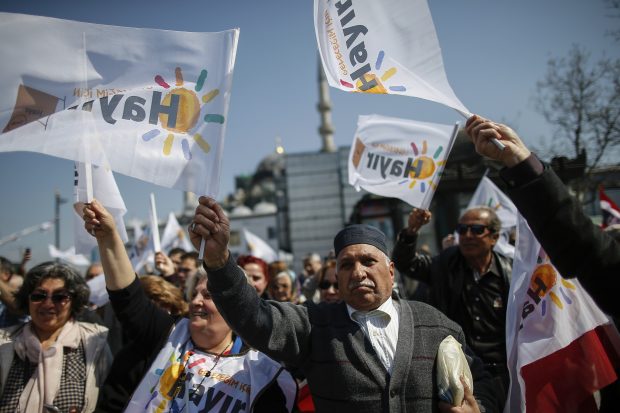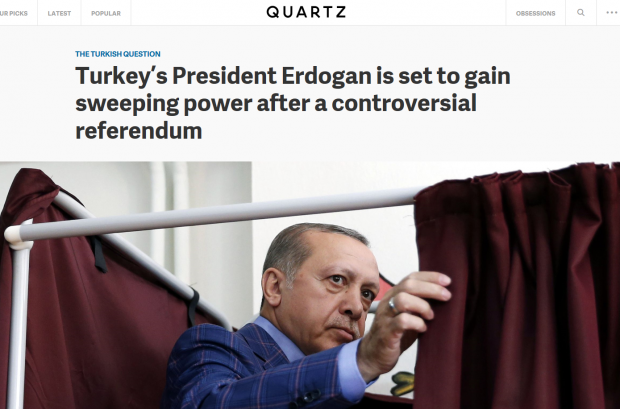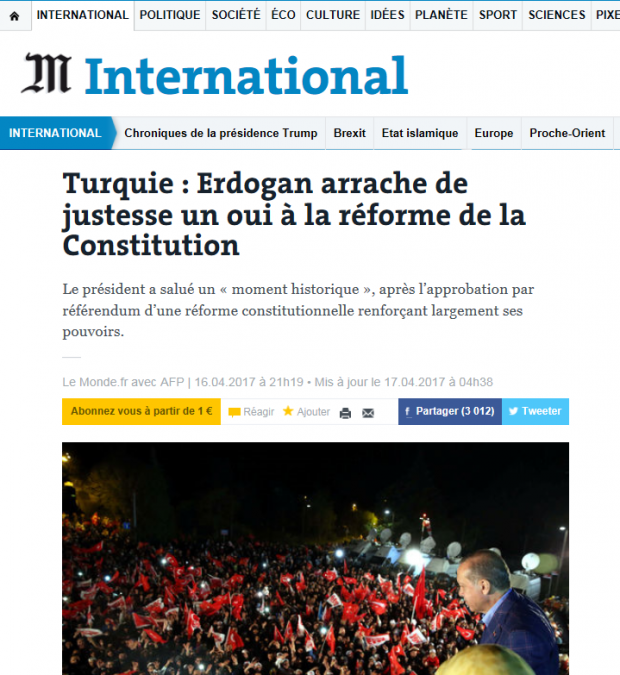Foreign Media Analysis: Turks Divided Over Sunday Referendum

(Photo: AP/Newsis)
 A little under half of those who voted for the Turkish referendum Sunday evening were unsatisfied with the results that granted extensive powers to the executive branch. As soon as the referendum goes into effect with the next presidential election to be held in 2019, the President will be able to select all of his cabinet members and the majority of justices in the nation’s high court. Not only will this secure the President’s rights, it will bar the checking system reserved to each branch of government.
A little under half of those who voted for the Turkish referendum Sunday evening were unsatisfied with the results that granted extensive powers to the executive branch. As soon as the referendum goes into effect with the next presidential election to be held in 2019, the President will be able to select all of his cabinet members and the majority of justices in the nation’s high court. Not only will this secure the President’s rights, it will bar the checking system reserved to each branch of government.
Superficially, the referendum was a constitutional change, but a second layer to the change marks approval of current Turkey President Recep Tayyip Erdogan’s repressive manner in running the country. Even before the rerefendum, Erdogan had already been stretching the limits of the power his office held—mainly a symbolic role. Countless domestic and foreign reporters have been and are still being persecuted by Erdogan’s administration signifying dissent to any public display of national rebellion.
 This, however, is not stopping foreign media from criticizing Turkey’s move to former less-than democratic tendencies. Excluding some of Turkey’s major media outlets that are praising the referendum as a new era of democratic elections with more than 80 percent voter turnout, the UK, USA, Georgia, France, and Germany unanimously questioned the fairness of the referendum, making note of the fact that elections were held by placing voters in an atmosphere of fear.
This, however, is not stopping foreign media from criticizing Turkey’s move to former less-than democratic tendencies. Excluding some of Turkey’s major media outlets that are praising the referendum as a new era of democratic elections with more than 80 percent voter turnout, the UK, USA, Georgia, France, and Germany unanimously questioned the fairness of the referendum, making note of the fact that elections were held by placing voters in an atmosphere of fear.






















































